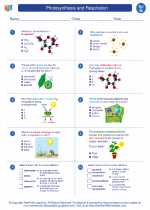Biofuels
Biofuels are a type of renewable energy derived from organic materials, also known as biomass. They are considered an alternative to fossil fuels and are used to power vehicles, heat buildings, and generate electricity. Biofuels are generally classified into four main categories: bioethanol, biodiesel, biogas, and solid biofuels.
Bioethanol
Bioethanol is a type of alcohol that is produced by fermenting sugars from plants such as corn, sugarcane, and wheat. It is commonly used as a fuel additive to gasoline, and in some countries, it is used as a standalone fuel for vehicles.
Biodiesel
Biodiesel is made from vegetable oils, animal fats, or recycled cooking grease through a process called transesterification. It can be used as a direct substitute for diesel fuel in diesel engines without any modifications.
Biogas
Biogas is produced through the anaerobic digestion of organic materials such as agricultural waste, manure, and sewage. It primarily consists of methane and carbon dioxide and can be used for heating, electricity generation, and as a vehicle fuel.
Solid Biofuels
Solid biofuels include wood, agricultural residues, and other organic materials that can be burned to produce heat and electricity. They are commonly used in residential heating and in industrial processes.
Study Guide
- What are biofuels and why are they considered important in today's energy landscape?
- List and describe the four main categories of biofuels.
- Discuss the environmental benefits and challenges associated with the production and use of biofuels.
- Compare the advantages and disadvantages of biofuels compared to traditional fossil fuels.
- Research and present a case study on a country or region that has successfully integrated biofuels into its energy mix.
◂Science Worksheets and Study Guides Seventh Grade. Photosynthesis and Respiration

 Worksheet/Answer key
Worksheet/Answer key
 Worksheet/Answer key
Worksheet/Answer key
 Vocabulary/Answer key
Vocabulary/Answer key
 Vocabulary/Answer key
Vocabulary/Answer key
 Vocabulary/Answer key
Vocabulary/Answer key
